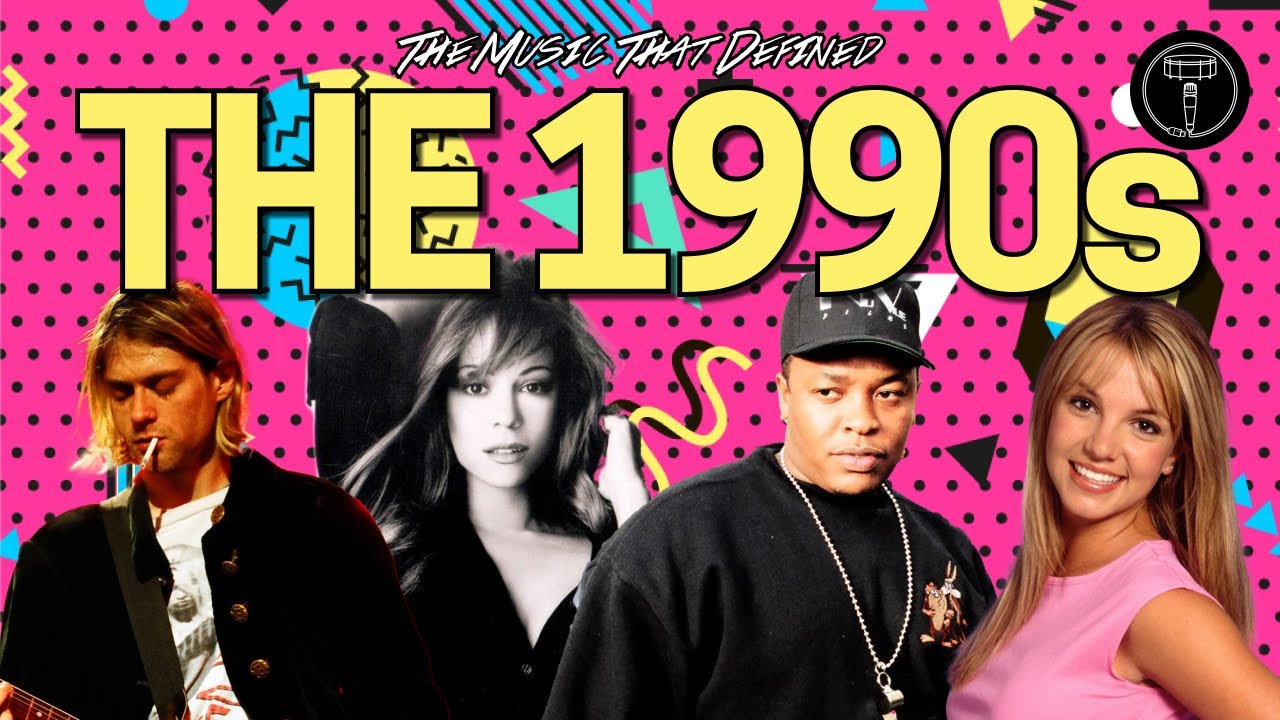Here’s a comprehensive overview of 1990s music, touching on genres, cultural shifts, key artists, and the legacy of the decade:
🎵 1990s Music Overview
🎚️ Defining Characteristics
- Genre Explosion: The 1990s were marked by a rich tapestry of musical styles, from grunge and hip-hop to teen pop and techno.
- MTV & Globalization: Music videos and cable TV supercharged global stardom. Music became more visual, diverse, and commercially competitive.
- Digital Revolution: CDs dominated music sales, and the decade ended with the rise of MP3s and file-sharing platforms like Napster, foreshadowing the streaming era.
🎸 Major Genres & Trends
| Genre | Description |
|---|---|
| Grunge/Alt Rock | Originating in Seattle, it brought a raw, angst-driven sound to the mainstream. |
| Hip-Hop & Rap | Went mainstream; artists used it to express political, social, and personal themes. |
| R&B/Neo-Soul | Smooth vocals, funk influences, and hip-hop beats characterized the decade’s R&B. |
| Teen Pop | Catchy, radio-friendly acts dominated the charts later in the decade. |
| Electronic/Dance | Rave culture, house, trance, and big beat gained huge popularity in clubs. |
| Country Pop | Artists like Garth Brooks and Shania Twain helped crossover to pop success. |
🌟 Notable Artists by Category
Grunge & Alt Rock
- Nirvana, Pearl Jam, Soundgarden, Radiohead, Smashing Pumpkins
Hip-Hop & Rap
- Tupac Shakur, The Notorious B.I.G., Dr. Dre, Snoop Dogg, Lauryn Hill, Nas, OutKast
Pop & Teen Idols
- Britney Spears, Backstreet Boys, *NSYNC, Mariah Carey, Christina Aguilera
R&B & Soul
- Boyz II Men, TLC, Aaliyah, Destiny’s Child, Erykah Badu, D’Angelo
Electronic & Dance
- The Prodigy, Fatboy Slim, Daft Punk, Moby, Björk
Country Crossover
- Garth Brooks, Shania Twain, Faith Hill, Dixie Chicks
🗓️ Key Music Events & Milestones
- 1991: Nirvana’s Nevermind reshapes rock music.
- 1992: Dr. Dre releases The Chronic, launching G-Funk.
- 1994: Kurt Cobain’s death signals the decline of grunge.
- 1997: The death of Princess Diana sparks massive sales of Elton John’s “Candle in the Wind 1997.”
- 1999: Napster launches, disrupting music distribution forever.
📻 Cultural Impact
- Hip-hop became the voice of a generation, influencing fashion, language, and activism.
- The rise of women in pop and R&B: female artists dominated charts and redefined star power.
- Alternative and indie ethos challenged commercial pop and corporate music.
- Global influence grew as artists like Ricky Martin and the Spice Girls helped popularize “world pop.”
🏆 Enduring Legacy
- The 1990s laid the groundwork for genre blending and modern pop/hip-hop dominance.
- It was a bridge between analog recording and digital streaming.
- Many 90s artists and sounds remain highly influential and nostalgically revered.


Leave a Reply